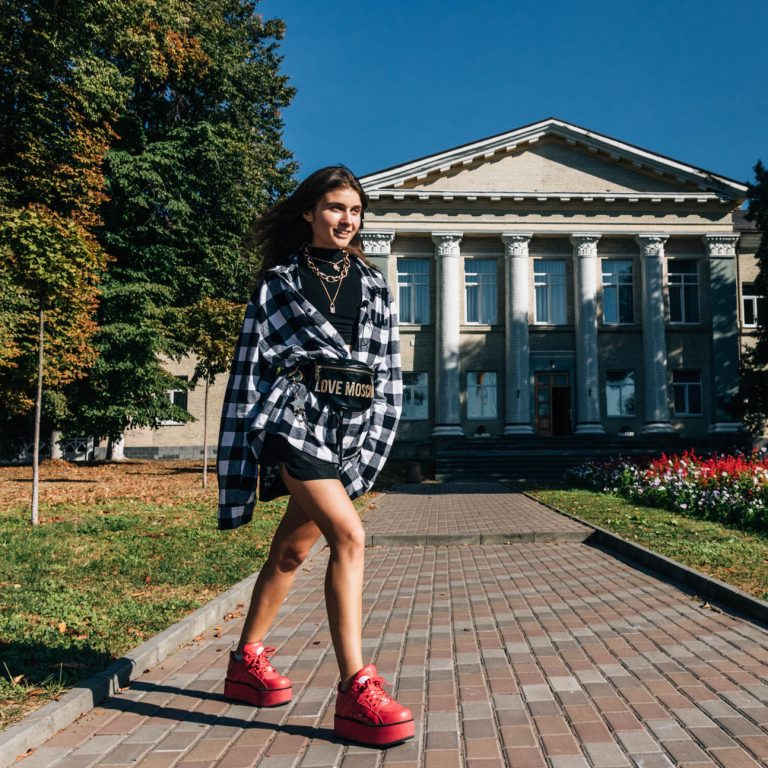Big cities tend to sit in the spotlight, grabbing all the attention, leaving the surrounding provinces in their shadow. Less than half an hour’s drive from Kyiv is the historic town of Vasylkiv; though small and often overlooked, it is one of the oldest towns in Ukraine, with an important spiritual and religious heritage. Here too, there are local ‘ambassadors’ who can tell it better than any guide book or history book. In our fifth story, singer and blogger Jerry Heil (real name Yana Shemayeva) introduces her native Vasylkiv, the place where she spent her childhood and fell in love with music. Bogdan Logvynenko, the founder of the Ukraїner project, joined her for the tour.
How often do you come to Vasylkiv, now that you live in Kyiv?
— Recently, I haven’t been there at all often. But actually, not long ago I got ill, and I came home for 24 hours to recover; it helped me immensely. My father took me to the forest near where I grew up. It’s like a place of power: my father says we have an umbilical connection to it.
— How did your parents raise you?
—I had a sheltered childhood, and was brought up to be very well-behaved. I’m still afraid that somebody will complain to my mum about me. When I had my first date, my mum and aunt followed me and spied on me!
— Does Vasylkiv have the potential to become a tourist destination, in your opinion?
— For the moment, no, I don’t think so. But it definitely has some cosy places, some of which became real favourites of mine when I was living here.
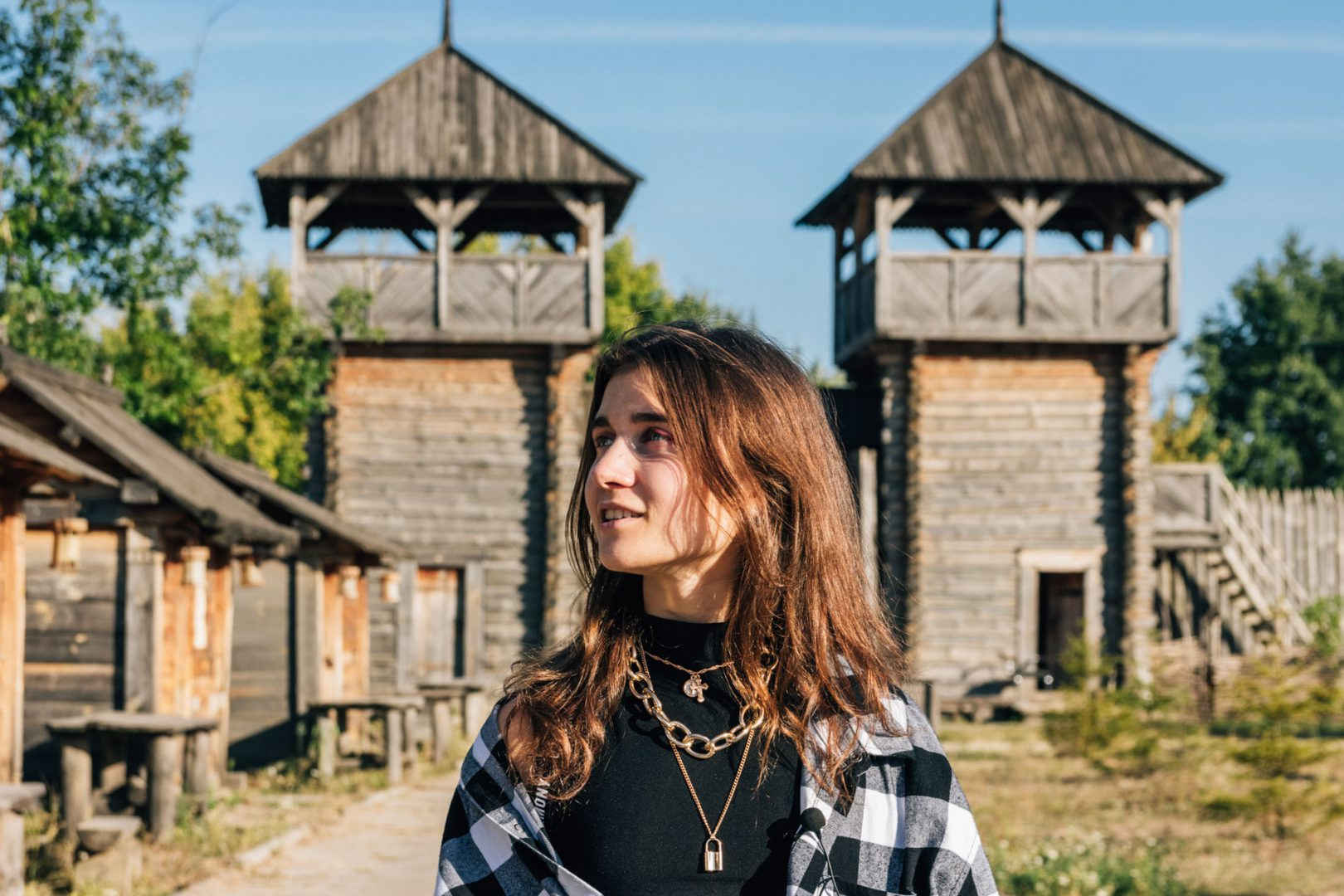
Jerry Heil shares her experience on social media, making videos on various topics. One of her most popular topics is raw eating, which the singer has practiced since May 2018. Some time before that, she became a vegetarian and began shopping for food in specialised stores.
Lyudmyla Degtyariova owns the vegetarian shop “Natural Boom” in Vasylkiv, where Jerry Heil used to buy her groceries. Lyudmyla tells us that she moved to Vasylkiv from Donetsk in 2014, when the war broke out in the east of Ukraine: “At first, my son got me into vegetarianism. Then, a year later, I became interested in raw eating. Vasylkiv is a small town, and not everyone here is interested in this kind of thing, but we do have a number of clients.”
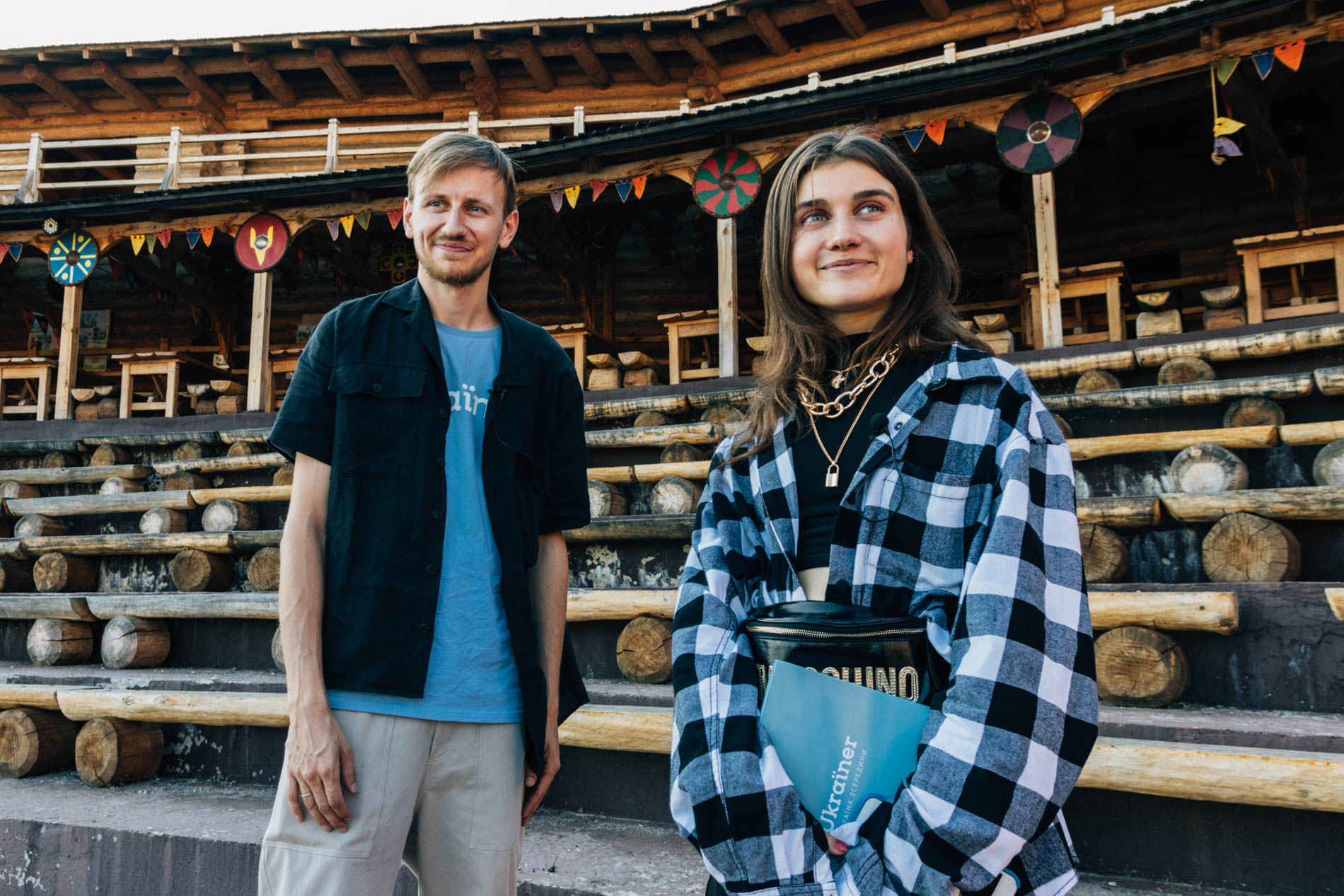
— What was your impulse to become vegetarian?
— I am from a family of butchers, where meat is the “daily bread” — so what could go wrong? I used to eat the rissoles my mother made, but in the back of my head, there was always this understanding that it isn’t right to kill another creature if there are other options. One day I was scrolling through social media stories, and I started watching some girl cutting up meat in her kitchen, and I threw up. And that was that. From that moment on, I haven’t been able to eat meat.
— Is it more convenient to be a rawtarian?
— Definitely. My friend came to visit me in my old flat, and looked around and said: “Well, you can certainly tell that a rawtarian lives here!” I asked her what she meant, and she answered: “Because you don’t even have a stove in your kitchen!” I was surprised — I hadn’t noticed it at all.
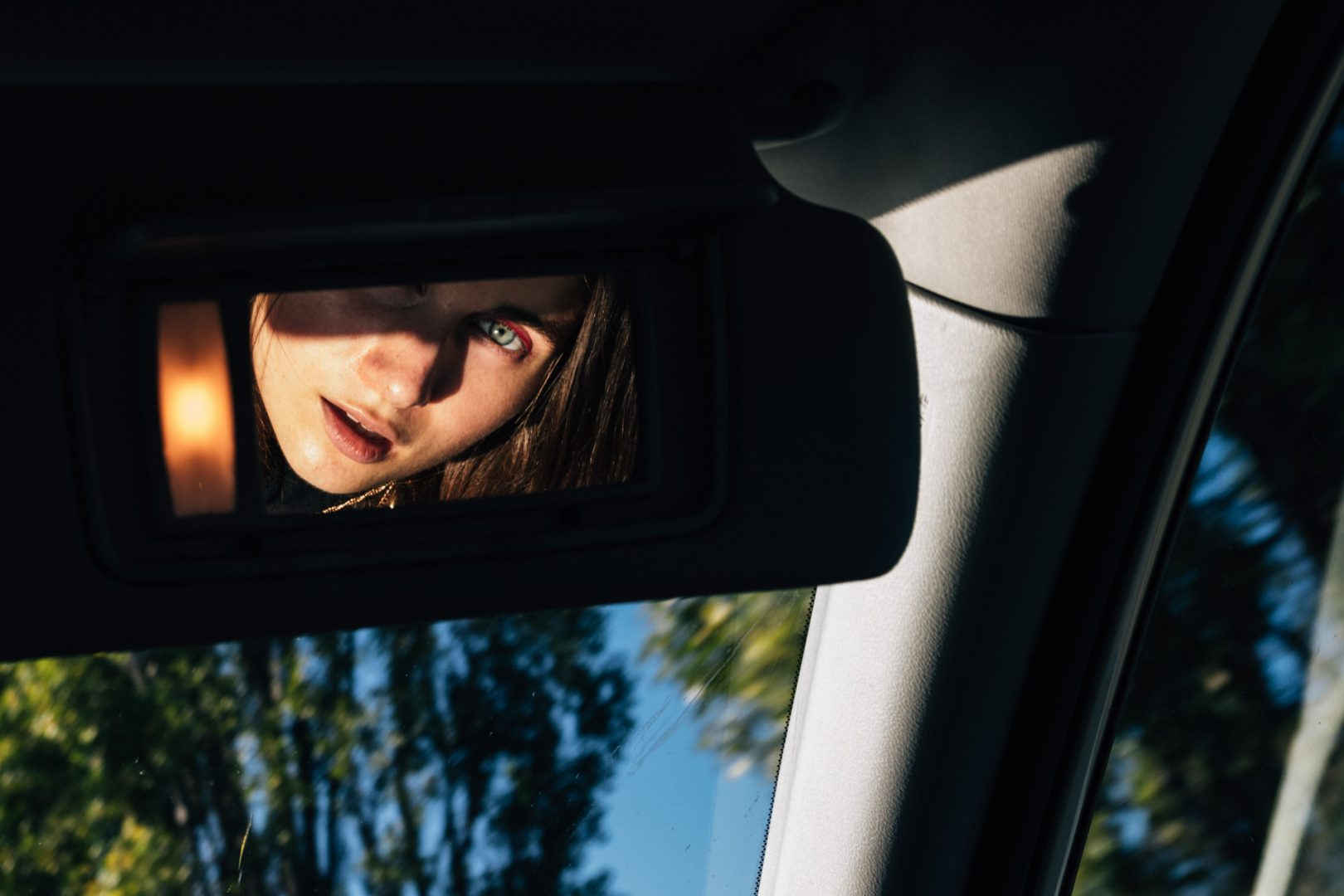
Ukraine is full of places named after other places: Kyivan Venice, the Ukrainian Athens, the Ukrainian Maldives. This naming convention, overused by journalists in recent years, subtly points to a kind of inferiority complex, suggesting that these places are not worthy of their own names. Near Vasylkiv, you can find the “Vasylkiv Carpathians” (or “Velykobuhayivski Carpathians”), one of the area’s most significant landscape reserves. Rich with natural beauty, the area deserves its own name, without unnecessary comparisons.
— People like to make these comparisons, don’t they?
— Exactly! It’s always surprised me. It’s like when raw food restaurants serve “rawtarian borshch”. It’s not borshch, guys! You can’t call it borshch. Borshch is completely different. Why don’t you give your product a different name, since it even tastes different? People will still love it. And this place isn’t just another Ukrainian version of somewhere else. It’s a unique phenomenon, and beautiful in its own right. Why not just name it the ninth wonder of the world, for example?
— What is your connection with Velyka Buhayivka?
— I know this village because I teach singing lessons to an amateur folk music group here. Their average age is about 50. But they’re full of energy. They sometimes go to perform in Poland. They never sit still — I really like that.

— So do they perform on tour more often than you?
— I think we’re just about equal. But it’s really cool — I never thought I would teach singing to people so much older than me. Some of them are three times my age!
— Do they behave themselves?
— They pay attention to what I say, and that’s very nice when you’re a young person and you know what you’re talking about, but still lack confidence because the people sitting in front of you are grown women.
— What connects you to Vasylkiv?
— Actually, everything. I keep coming back here. All my best memories come from here, since my music school is the place where I spent most of my life. I studied here from the age of three — first I learned to sing pop, then took piano lessons, studied academic singing. Right after that, I got a place at music college. That’s why music is my life — it all started here.
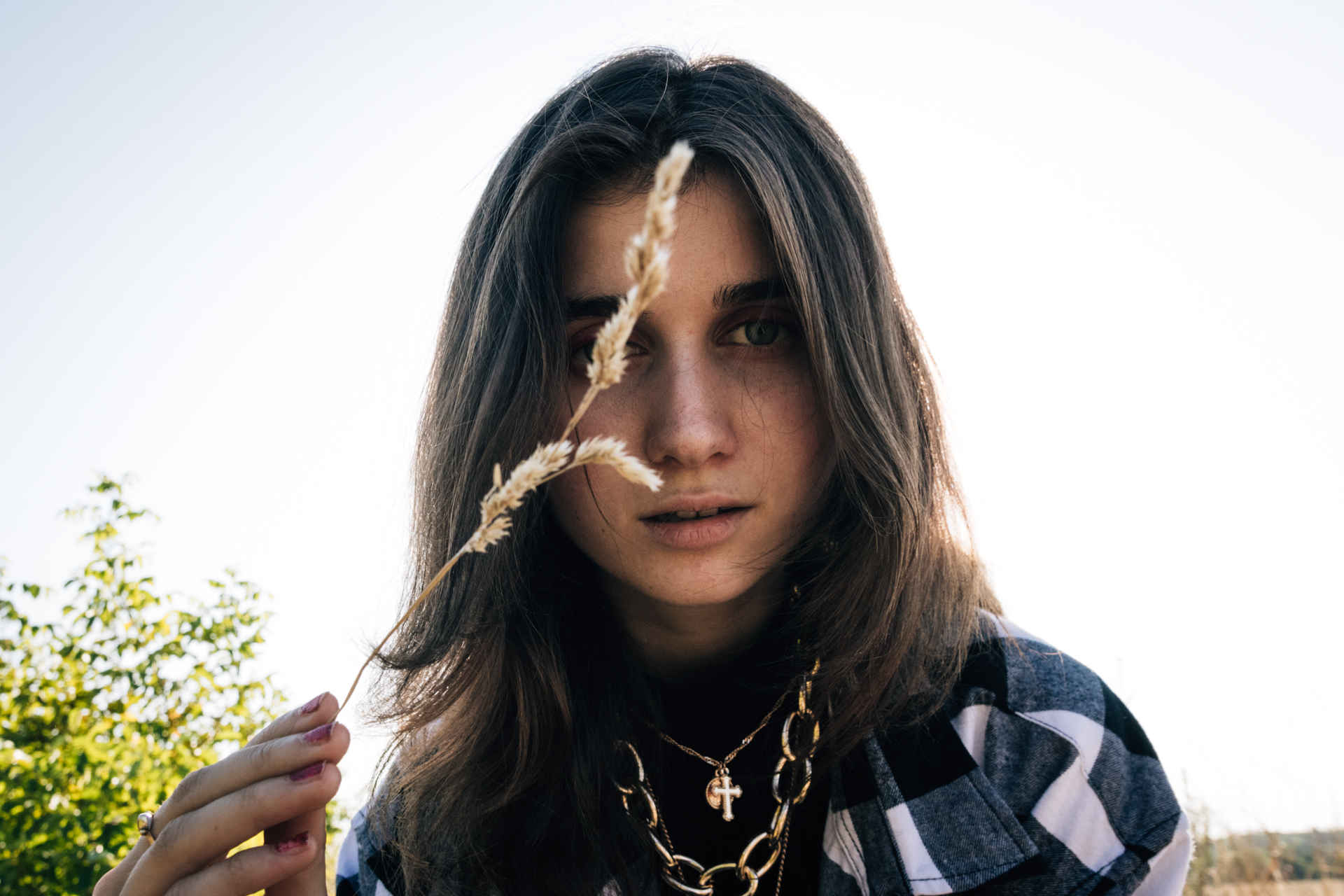
— What about your school life here? Did that go smoothly?
— Until the 4th grade, I studied at a different school because I lived in another district, near the forest. It was so stressful to transfer to a new school, where I didn’t know anyone except one girl.
— Have you ever been a victim of bullying?
— I can’t say that I suffered a lot from it, but I do remember when an older girl at school grabbed me and dragged me to the principal’s office, although I’d done absolutely nothing, I’d just been standing in the middle of the corridor. I also remember a time when it became popular to organise a “strilka” — a confrontation between schools.
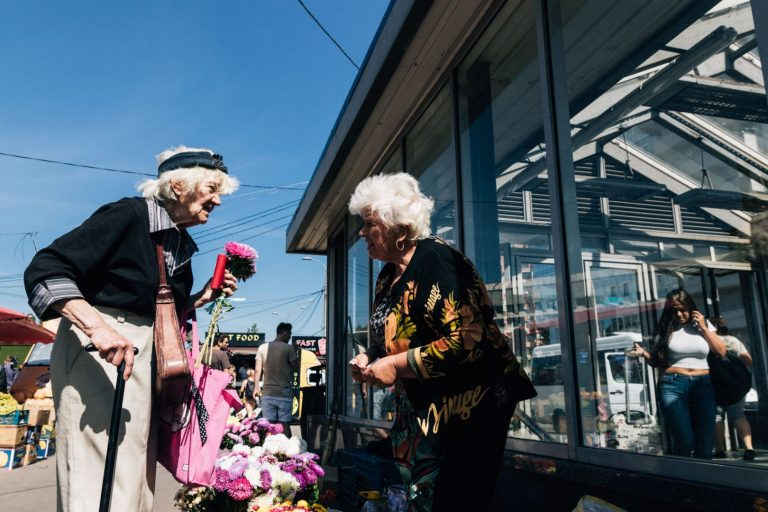
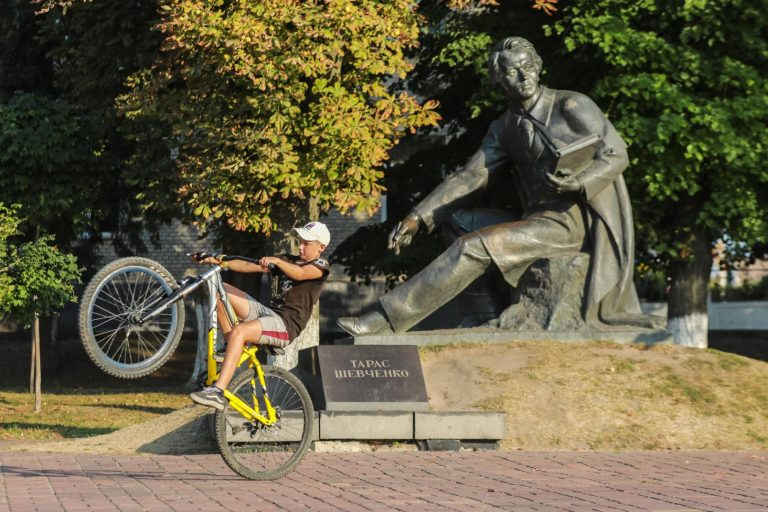
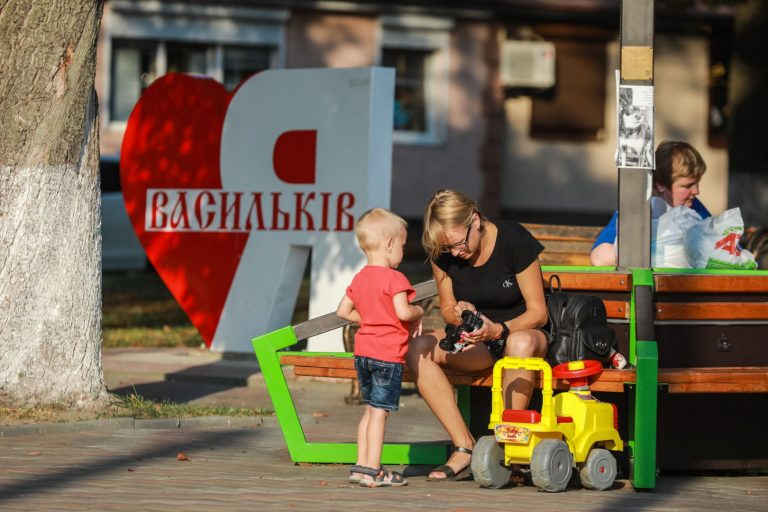
slideshow
— Have there been any tangible improvements in Vasylkiv? Do you see or feel any changes?
— Town improvement is a big topic, both for people my age and for older people. I like the changes that are taking place in the town centre, like the avenue of sakura they’ve planted. They’re taking care of the town. At the community centre, they hold events where young people can explore their musical talents. There are talent contests where young musicians perform their own songs and raise money for charity. All that is awesome. The town is developing; maybe not on a large scale, but it’s great that there are people who want to make it happen. Things are definitely going in the right direction.
Jerry Heil became popular via the YouTube channel she created in 2012, where she uploaded cover versions of well-known Ukrainian and foreign songs. She also began blogging. Her cover versions gained recognition and popularity; some of her videos have been viewed 100 000 times.
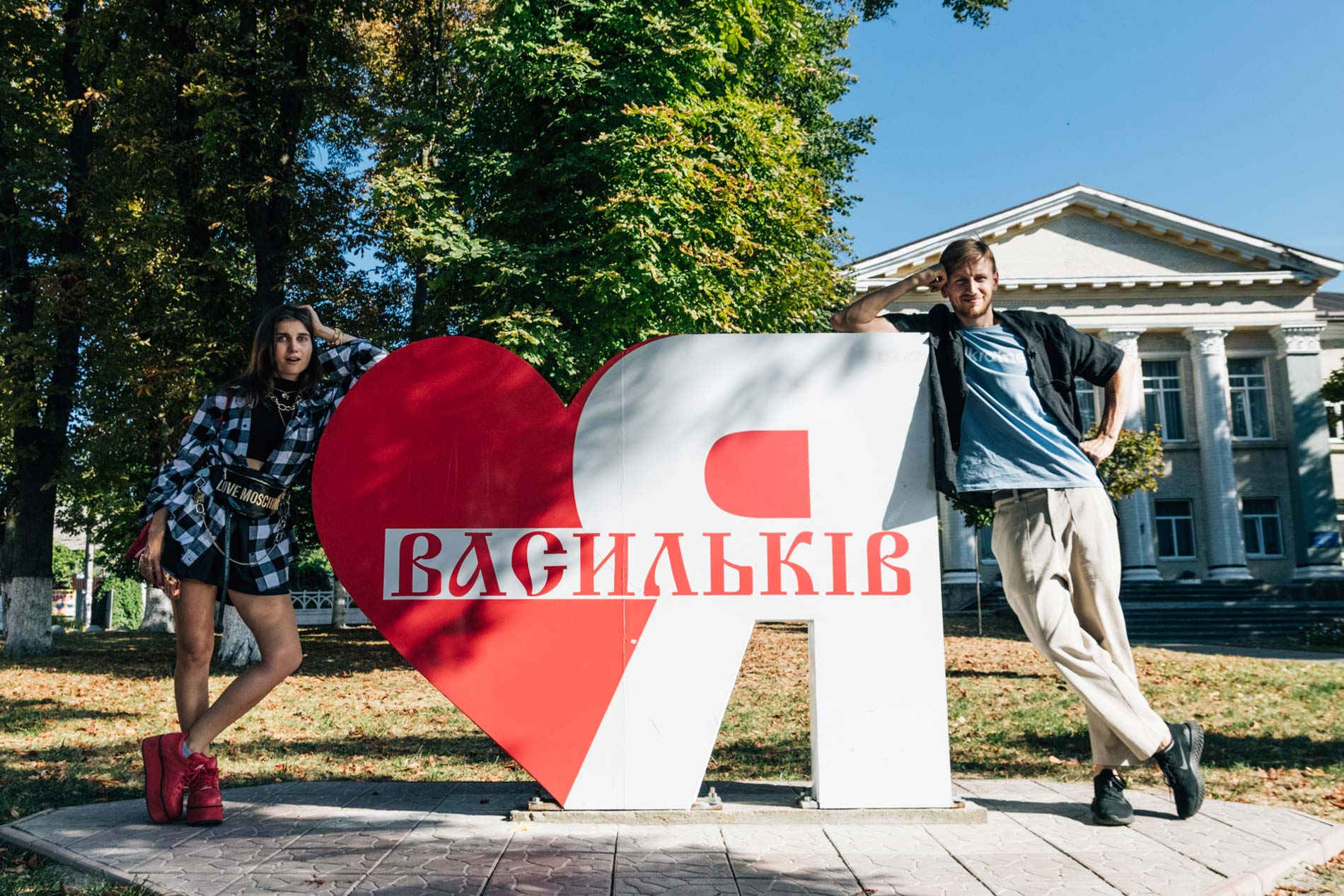
— What did you do before you started blogging?
— Before I became a blogger, I thought I would be a photographer. And if my dad hadn’t believed in me, he wouldn’t have bought me a camera, and as a result, I wouldn’t have become a blogger because I wouldn’t have had anything to shoot my videos with.
— Do you keep track of who your audience is?
— You know, at this point, I don’t have the slightest idea. Earlier, my audience was mostly girls aged 18 to 24, or 35 at the very most. Now it covers all age groups. It’s very interesting when I go to different cities and find a different fan base in each one. For example, in Kharkiv, they’re mostly adults over 24, and students, of course. In Rivne, the audience is mostly 11-year-olds, and they are very devoted fans. You can’t imagine how devoted they are. While I was on stage, their eyes were shining; when I finished singing, I was meant to get the train back almost immediately, but I spent almost an hour taking photos with them — there were so many people that it was impossible to take a photo with each and every one of them. When I ran out of time they started crying.
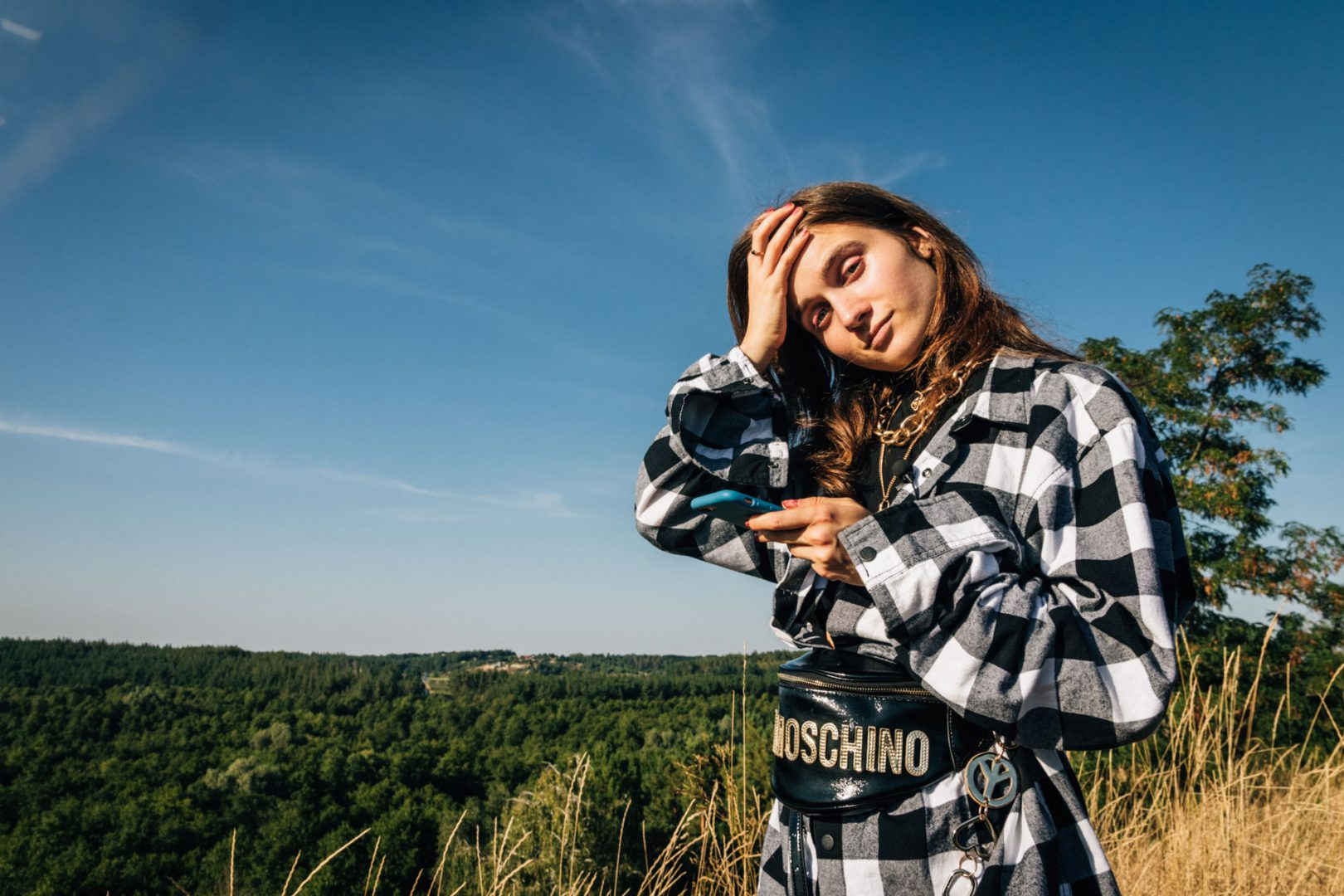
— Why do you think you have become so popular with young listeners? Is it because of the song “Okhrana, otmyena!”?
— I think it’s because this song has simple lyrics, a sweet tune, and there isn’t too much sex in it. I feel like that’s why it stood out from everything else currently on air. The main thing is, of course, the refrain — “Okhrana, otmyena!”*. The phrase was on everyone’s lips even before that song appeared.
— What’s the idea behind your songs? You take memes and turn them into lyrics?
— I take whatever is relevant to people’s lives, and set it to music.
— What do you spend the most money on? Do you spend money on music?
— Right now, more than anything else, I spend money on clothes. I finally have the opportunity to work with a stylist, and I spend money on clothes that represent who I am. I have strict requirements, though. I can’t wear anything made of feathers, or leather, for example. We’ve found our brand — I mean, a brand that reflects my ideology — Stella McCartney. Stella McCartney has launched a vegan line of shoes. So if you saw me wearing super-high white platform shoes, remember — they’re made out of 100% vegan materials!
“Okhrana, otmyena!”
“Security, cancellation!”, a phrase used by supermarket cashiers when they call for a security officer to cancel an item.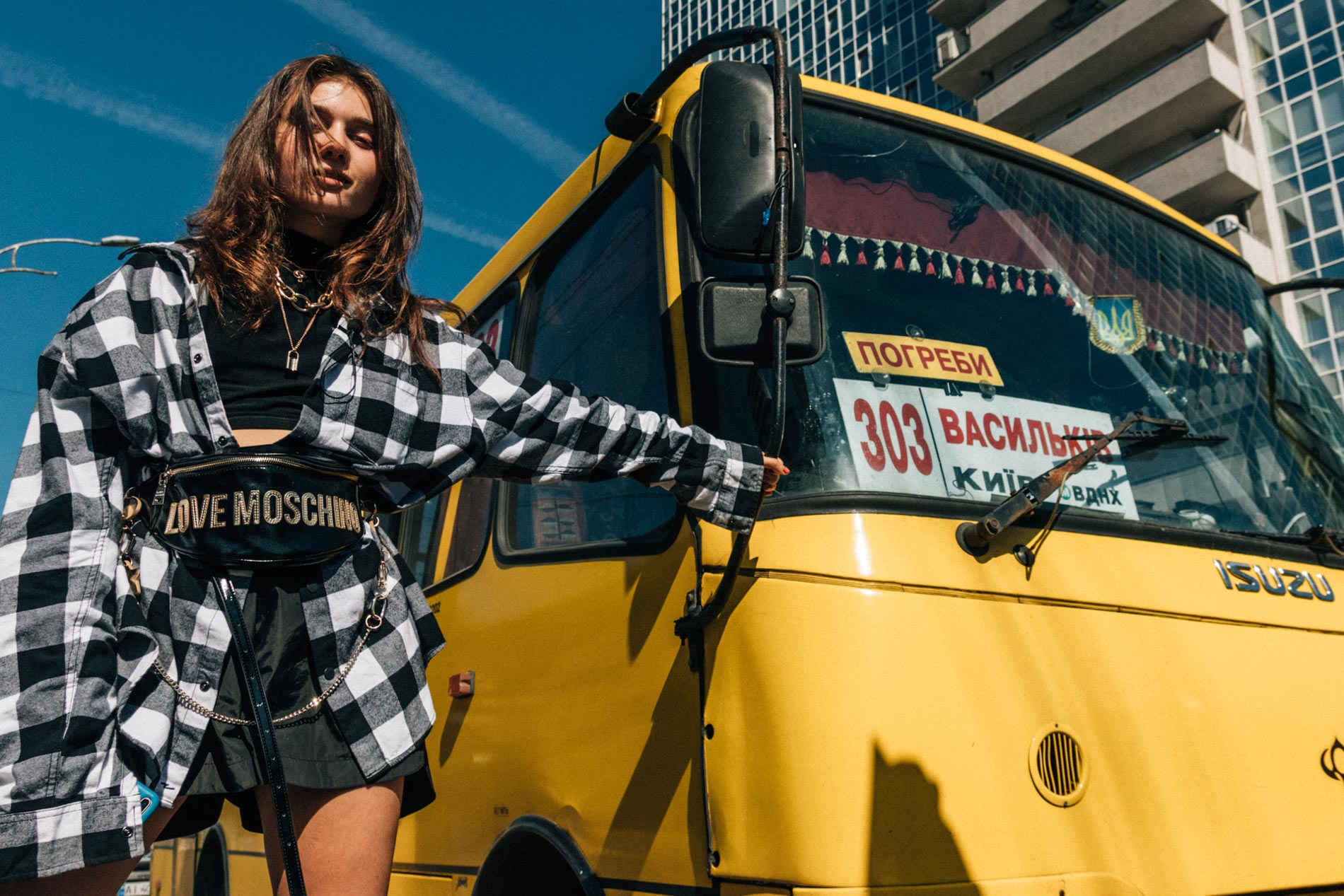
Stellа McCartney
English designer who never uses leather or fur.
— When you come to Vasylkiv, do people recognise you?
— Yes, all the time, but so what? It’s not that hard to become famous in Vasylkiv, and I think that I dreamed of becoming famous partly because it’s such a small town. At school I was incredibly quiet — there were some “stars” in my class, and the whole town knew them. I used to watch them, wanting what they had, but I knew that I couldn’t do it their way.
— What were they famous for?
— Well, they followed certain standards, like competing to see who could drink the most at parties, but I’ve never been into that. So I decided to do it my way. And it looks like it’s working.

